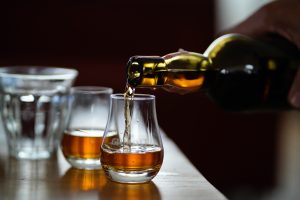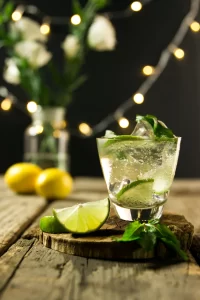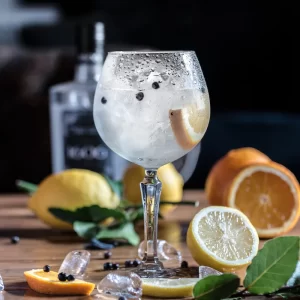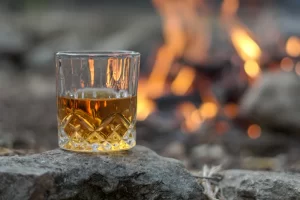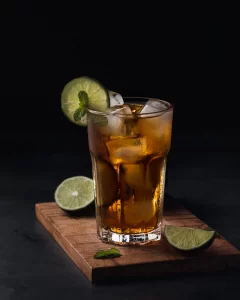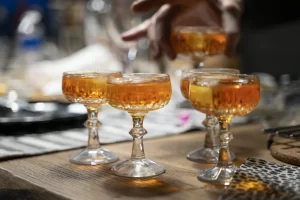Virginia Liquor Laws And Regulations
If you want to set up a distillery in Virginia, then make sure that you are familiar with the Virginia liquor laws and regulations.
Virginia is one of the 17 control states where the state government controls the distribution and sales of beer, wine and distilled spirits.
Distilled spirits are only allowed to be sold in state-approved liquor stores. This means that you can’t find any bars or grocery stores that sell hard liquor.
In this guide, we take a closer look at Virginia’s liquor laws, required licenses for distilleries and license fees.
Virginia Liquor Laws
As all liquor sales and manufacturing processes are managed by the state of Virginia, the Virginia Alcoholic Beverage Control Authority administers Virginia’s ABC laws.
Customers can only purchase distilled spirits, such as gin, bourbon, rum, whiskey and tequila, in Virginia from licensed ABC stores.
Virginia doesn’t allow any specific establishments only for the consumption of alcohol. This is the reason why the state doesn’t have any bars.
Only restaurants with a banquet license are allowed to serve alcoholic beverages for consumption on the premises.
Virginia has a number of “dry” counties where no hard liquor is allowed to be sold or imported, including Russell, Patrick, Lee, Highland, Grayson, Floyd, Craig, Charlotte, Buchanan and Bland.
However, you can still buy and consume wine and beer in these counties as long as you are over 21 years of age.
In addition, the state of Virginia prohibits the sale of alcohol in unusual or novel containers. There are a number of specific guidelines on what these containers look like.
Industry Licenses For Alcohol Manufacturers In Virginia

Virginia offers a great variety of different licenses, including banquet licenses, retail licenses, industry licenses and permits.
Depending on what license you need, you can get a license for the production, selling and shipment of beer, wine and distilled products inside and outside of Virginia.
Distillery License
Distilleries can apply for a distillery license with the state of Virginia. This allows businesses to produce, sell, ship and deliver distilled spirits.
The spirits need to be kept in closed containers and can be shipped inside or outside of Virginia.
Alternatively, distilleries can also apply to only manufacture distilled spirits. You will need a limited distillery license for this.
Brewery
A brewery license allows the licensee to produce, sell, ship and deliver beer to individuals, wholesalers and distributors across the state and outside Virginia.
Farm Winery
A farm winery license allows license holders to deliver and sell wine products.
Beer Wholesaler
Licensees with a beer wholesaler license are allowed to receive and acquire shipments of beer.
They are also permitted to sell, ship and deliver beer to retail establishments and other wholesalers.
Wine Wholesaler
With a wine wholesaler license, a business can receive and acquire shipments of wine to ship, deliver and sell to retailers inside and outside of Virginia.
Other Industry Licenses
Depending on your type of business, the state of Virginia also offers other licenses, including
- Beer bottler
- Beer importer
- Limited brewery
- Fulfillment warehouse
- Gourmet brewing shop
- Internet retailer
- Marketing portal
- Shipper
- Wine importer
Permits
If you are a distillery and you want to sell distilled spirits on your premises or for an event, then you either need a banquet license or a license for a manufacturer’s distilled spirits event.
You can complete the application for this license online within just 30 minutes. The ABC takes around 10 days to process your application.
The ABC website also provides instructions and guidelines on how to complete your banquet license application.
License Fees
License fees for manufacturers of beer, wine and distilled spirits vary according to the specific spirit and the production size.
Distilleries that produce 5,000 gallons of distilled spirits or less are charged $490. Businesses that manufacture between 5,001 and 36,000 gallons need to pay a fee of $2,725.
Any distilleries producing more than 36,000 gallons of distilled spirits are charged $4,060 for their liquor license.
These fees can vary depending on changes in the law, so make sure to check the Virginia ABC website.
Manufacturers of distilled spirits may also need to pay fees and taxes on local licenses. Depending on the type of products you sell, your size of production and how you distribute your products, fees can vary greatly.
Licensing Requirements For Distilleries In Virginia

As a distillery, a business needs to obtain two key licenses: a distillery license from Virginia ABC and a Beverage Distilled Spirits Plant permit issued by the Alcohol and Tobacco and Trade Bureau (TTB).
Distilleries cannot start producing spirits until they have been issued the license and the permit.
Understand The Restrictions Of Your License
A distillery license from Virginia ABC allows distilleries to produce distilled spirits and sell their products to Virginia ABC, the government or other entities that are licensed to receive alcoholic beverages.
Distilleries should keep in mind that Virginia ABC is the state’s only wholesaler of hard liquors, including whiskey, gin and tequila.
As part of your distillery license, you are allowed to produce a certain amount of distilled spirits.
A Distillery License May become A Virginia ABC Agent
Virginia ABC may appoint distillery license holders as independently operated agents to allow them to sell distilled spirits in licensed ABC stores.
These agents can also sell their products on their own premises if they are authorized by the Virginia ABC as a licensed distillery store.
However, the distiller needs to enter into a written agreement with Virginia ABC to become an appointed agent.
Distilleries Need To Sell Their Products To Virginia ABC Before Opening A Store
Before a Virginia distillery can sell its products on its own premises, the distiller needs to sell one or more products through the retail stores of Virginia ABC.
Virginia ABC provides in-depth details about opening a distillery store in their supplier manual.
Distillers May Need To Be Authorized As Distillery Store
Any distillery that wants to sell its distilled spirit products on its own premises in a distillery store needs to list its spirits with Virginia ABC’s Management of Inventory and Product Sales System (MIPS).
In addition, distillers also need to be authorized as distillery stores. This authorization is issued by Virginia ABC and it requires the distiller to sign a written agreement.
Before authorization is granted, the distillery needs to complete an application and an agreement which should be sent to Virginia ABC.
The board will then decide if the application is approved or denied.
Final Thoughts
While Virginia has some strict liquor laws and regulations on alcohol manufacture, there are a number of distilleries in the state.
